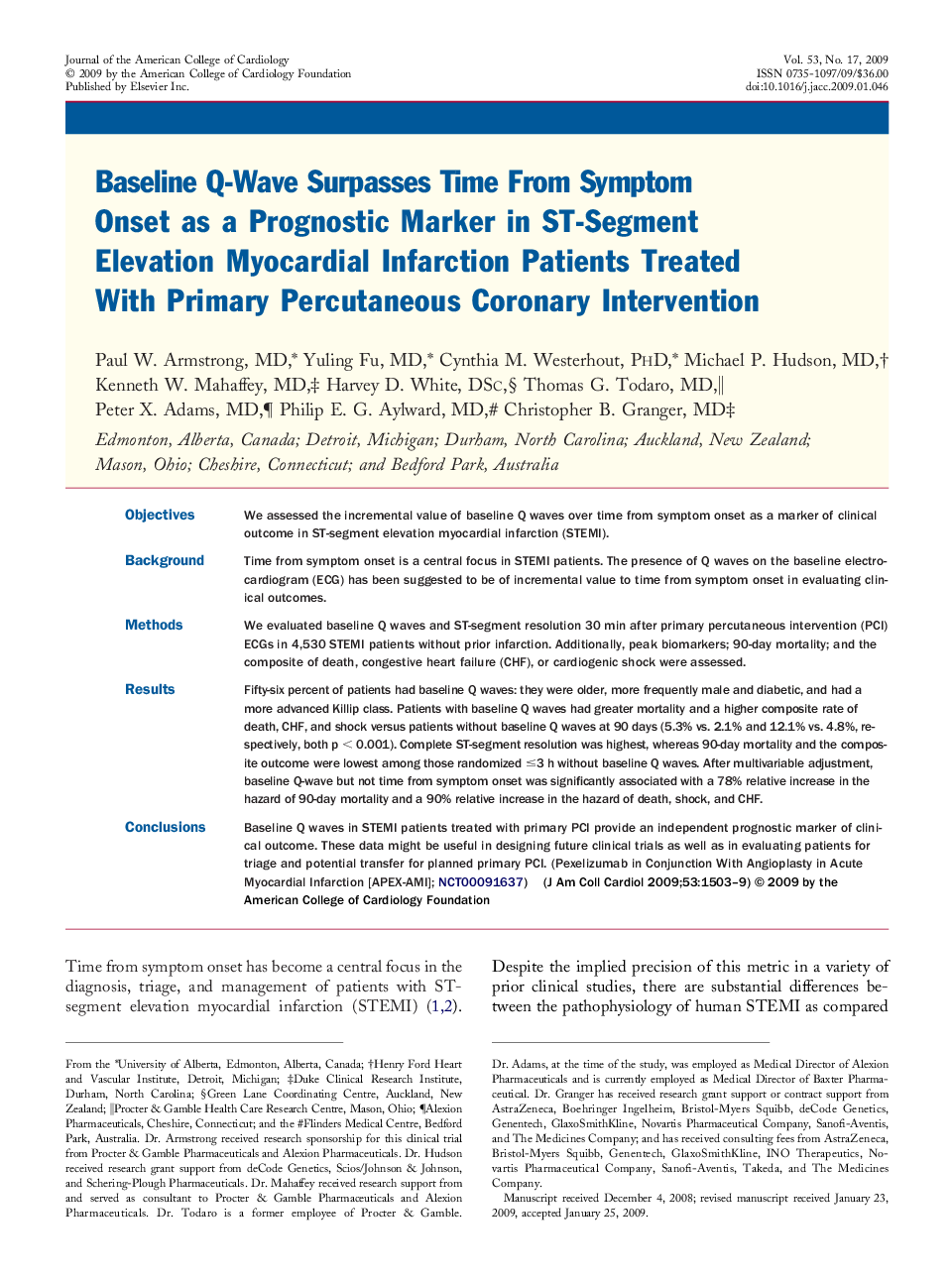| کد مقاله | کد نشریه | سال انتشار | مقاله انگلیسی | نسخه تمام متن |
|---|---|---|---|---|
| 2952107 | 1577372 | 2009 | 7 صفحه PDF | دانلود رایگان |

ObjectivesWe assessed the incremental value of baseline Q waves over time from symptom onset as a marker of clinical outcome in ST-segment elevation myocardial infarction (STEMI).BackgroundTime from symptom onset is a central focus in STEMI patients. The presence of Q waves on the baseline electrocardiogram (ECG) has been suggested to be of incremental value to time from symptom onset in evaluating clinical outcomes.MethodsWe evaluated baseline Q waves and ST-segment resolution 30 min after primary percutaneous intervention (PCI) ECGs in 4,530 STEMI patients without prior infarction. Additionally, peak biomarkers; 90-day mortality; and the composite of death, congestive heart failure (CHF), or cardiogenic shock were assessed.ResultsFifty-six percent of patients had baseline Q waves: they were older, more frequently male and diabetic, and had a more advanced Killip class. Patients with baseline Q waves had greater mortality and a higher composite rate of death, CHF, and shock versus patients without baseline Q waves at 90 days (5.3% vs. 2.1% and 12.1% vs. 4.8%, respectively, both p < 0.001). Complete ST-segment resolution was highest, whereas 90-day mortality and the composite outcome were lowest among those randomized ≤3 h without baseline Q waves. After multivariable adjustment, baseline Q-wave but not time from symptom onset was significantly associated with a 78% relative increase in the hazard of 90-day mortality and a 90% relative increase in the hazard of death, shock, and CHF.ConclusionsBaseline Q waves in STEMI patients treated with primary PCI provide an independent prognostic marker of clinical outcome. These data might be useful in designing future clinical trials as well as in evaluating patients for triage and potential transfer for planned primary PCI. (Pexelizumab in Conjunction With Angioplasty in Acute Myocardial Infarction [APEX-AMI]; NCT00091637)
Journal: Journal of the American College of Cardiology - Volume 53, Issue 17, 28 April 2009, Pages 1503–1509